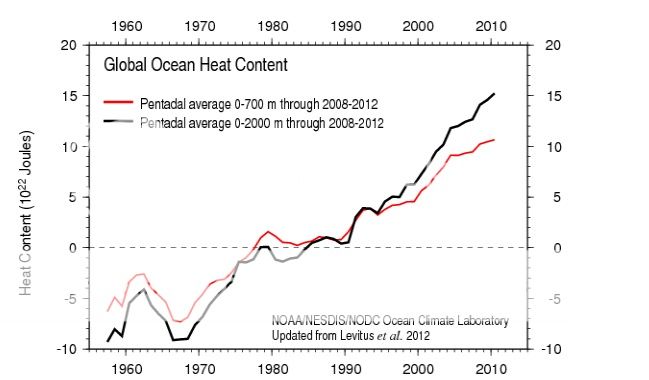The consensus has not dissipated among the scientific community. The forthcoming IPCC report will reaffirm the strong level of confidence concerning the role of anthropogenic factors on climate change.
What one has seen in recent years is a slowing of the warming on the surface. Some have grabbed onto that idea as proof for their contrarian beliefs.
The earth's large and persistent energy imbalance is leading to warming at three areas: lower atmosphere, surface, and oceans. The lower atmosphere has warmed most slowly. The surface is undergoing a slowdown in the warming, but a reversal. In part, much of the recent period has been dominated by neutral ENSO or La Niña conditions, not to mention the cold cycle of the Pacific Decadal Oscillation. The global land and surface anomalies were the warmest on record for the most recent strong La Niña.
If the consensus were wrong, then one should be unable to find the warming throughout the earth's climate system. However, if one goes to the oceans, one finds aggressive warming has been continuing, particularly below 700 meters (0-2000m warming > 0-700 m warming).
A recent paper that highlights the strong warming in the deep ocean can be found at:
Distinctive climate signals in reanalysis of global ocean heat content - Balmaseda - 2013 - Geophysical Research Letters - Wiley Online Library
In sum, a look at the entire climate system shows that ongoing warming is continuing unabated. For at least the time being, much of that warming is occurring in the deep ocean.

